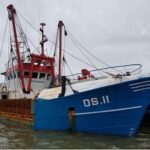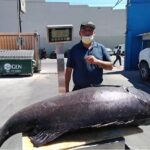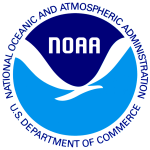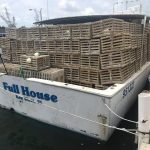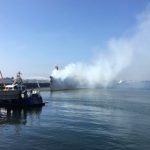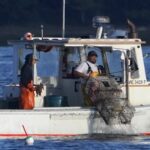Daily Archives: January 17, 2017
BIG Tuna story! Local man hauls in huge catch
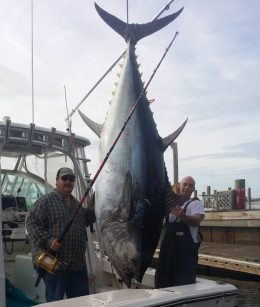 It seems like everyone has a big fish story – and every year that fish – and the tall tale that goes along with it, gets bigger and bigger. But for Reidsville native Tommy Adkins, he’s got the story and the photos to prove that his big fish story, is the real deal. Adkins, a self-described small-time commercial fisherman, took his boat “Fish ‘N Frenzy” out off the coast of Morehead City last Wednesday morning and came home with a whopping 800 pound-plus Atlantic blue fin tuna. It was not only the biggest tuna Adkins ever landed, but also the biggest blue fin tuna caught off the Morehead City port so far this season. After the fish was processed and cleaned, it dressed at 629 pounds and sold for $19 per pound. That’s a $11,951 pay day, but Adkins says there is a huge expense that goes along with the job that most people don’t realize. Click here to read the rest of the story 17:00
It seems like everyone has a big fish story – and every year that fish – and the tall tale that goes along with it, gets bigger and bigger. But for Reidsville native Tommy Adkins, he’s got the story and the photos to prove that his big fish story, is the real deal. Adkins, a self-described small-time commercial fisherman, took his boat “Fish ‘N Frenzy” out off the coast of Morehead City last Wednesday morning and came home with a whopping 800 pound-plus Atlantic blue fin tuna. It was not only the biggest tuna Adkins ever landed, but also the biggest blue fin tuna caught off the Morehead City port so far this season. After the fish was processed and cleaned, it dressed at 629 pounds and sold for $19 per pound. That’s a $11,951 pay day, but Adkins says there is a huge expense that goes along with the job that most people don’t realize. Click here to read the rest of the story 17:00
You are invited to the 2017 Massachusetts Lobstermen’s Association’s Annual Weekend and Industry Trade Show January 19-22, 2017
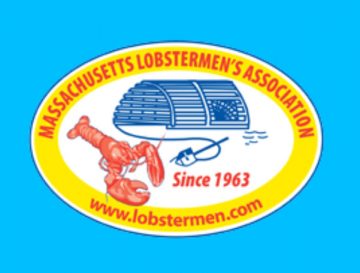 You are invited to the 2017 Massachusetts Lobstermen’s Association’s Annual Weekend and Industry Trade Show January 19-22, 2017 This event is open to all and admission is FREE! MLA ANNUAL WEEKEND AND TRADE SHOW 2017 PROGRAM Calling all Commercial Fishermen READ MORE HERE>>> COME MEET “WICKED TUNA” CAPTAIN DAVE MARCIANO f/v HARD MERCHANDISE Click here for more information 13:10
You are invited to the 2017 Massachusetts Lobstermen’s Association’s Annual Weekend and Industry Trade Show January 19-22, 2017 This event is open to all and admission is FREE! MLA ANNUAL WEEKEND AND TRADE SHOW 2017 PROGRAM Calling all Commercial Fishermen READ MORE HERE>>> COME MEET “WICKED TUNA” CAPTAIN DAVE MARCIANO f/v HARD MERCHANDISE Click here for more information 13:10
Port of Savannah leads in the export of shark fins
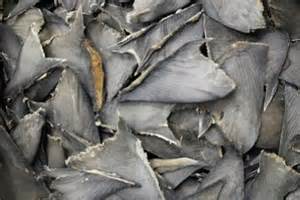 For the last three years the port of Savannah has been the U.S. leader in the export of shark fins, a legal but controversial trade item used to make shark fin soup, a delicacy in parts of Asia. Federal fisheries data show that although no shark fin was exported from Savannah in 2013, the trade here jumped in the following years from 18,444 pounds in 2014 to 25,765 pounds in 2015. That amounts to about $1.2 million in shark fins over the two years. Last year through November the export amounted to 19,171 pounds, valued at $559,845. In each case the shark fins were shipped to Hong Kong. Oceana is now advocating a nationwide ban on the shark fin trade. Not all shark lovers agree. Shark researcher Chris Fischer, a founder of Ocearch and a leader of its expeditions to catch and satellite tag great white sharks, said shutting down trade here will merely create a bigger opportunity for unmanaged fisheries elsewhere. Read the story here 12:33
For the last three years the port of Savannah has been the U.S. leader in the export of shark fins, a legal but controversial trade item used to make shark fin soup, a delicacy in parts of Asia. Federal fisheries data show that although no shark fin was exported from Savannah in 2013, the trade here jumped in the following years from 18,444 pounds in 2014 to 25,765 pounds in 2015. That amounts to about $1.2 million in shark fins over the two years. Last year through November the export amounted to 19,171 pounds, valued at $559,845. In each case the shark fins were shipped to Hong Kong. Oceana is now advocating a nationwide ban on the shark fin trade. Not all shark lovers agree. Shark researcher Chris Fischer, a founder of Ocearch and a leader of its expeditions to catch and satellite tag great white sharks, said shutting down trade here will merely create a bigger opportunity for unmanaged fisheries elsewhere. Read the story here 12:33
Penobscot East Resource Center Founder Robin Alden to step down as fisheries organization director
 Robin Alden, a one-time commissioner of the Department of Marine Resources under Governor John Mckernan and longtime editor and publisher of the regional trade publication Commercial Fisheries News, will step down as executive director of the Penobscot East Resource Center at the end of this year. The organization has begun a national search for her successor. Alden founded Penobscot East 13 years ago together with her husband, MacArthur Fellow Ted Ames, former Maine Sea Coast Mission pastor and fisheries advocate Ted Hoskins and Kristen and Paul Lewis. Started with only a few employees and a thin-as-a-shoestring budget in 2003, Penobscot East now has a dozen employees including fisheries scientists and marine policy experts. Under Alden’s stewardship, its operating budget has grown to $1.8 million. Read the story here 12:05
Robin Alden, a one-time commissioner of the Department of Marine Resources under Governor John Mckernan and longtime editor and publisher of the regional trade publication Commercial Fisheries News, will step down as executive director of the Penobscot East Resource Center at the end of this year. The organization has begun a national search for her successor. Alden founded Penobscot East 13 years ago together with her husband, MacArthur Fellow Ted Ames, former Maine Sea Coast Mission pastor and fisheries advocate Ted Hoskins and Kristen and Paul Lewis. Started with only a few employees and a thin-as-a-shoestring budget in 2003, Penobscot East now has a dozen employees including fisheries scientists and marine policy experts. Under Alden’s stewardship, its operating budget has grown to $1.8 million. Read the story here 12:05
Washington State Commercial and Sport fishermen demand transparency in setting salmon seasons
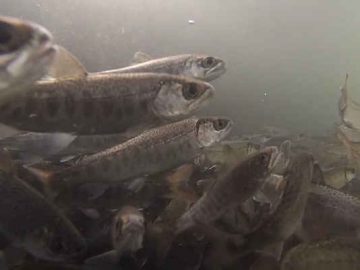 Commercial and sport fishermen are demanding change when it comes to the annual process that determines who gets to fish how much salmon and when. It’s called the North of Falcon process, and it involves several months of private meetings between federal, state, and tribal representatives. They typically start in February. The meetings are not open to the public, but a petition that’s gained more than a 1,000 signatures is just one sign of rising tides against the process, as non-treaty recreational and commercial fishermen rally for transparency. Tribal representatives defend their push for fishing restrictions over the last few years, pointing to low salmon returns. In 2016, the North of Falcon process took so long, the fishing season was canceled for weeks as the state and tribal co-managers stood at a stalemate. Read the story here 09:18
Commercial and sport fishermen are demanding change when it comes to the annual process that determines who gets to fish how much salmon and when. It’s called the North of Falcon process, and it involves several months of private meetings between federal, state, and tribal representatives. They typically start in February. The meetings are not open to the public, but a petition that’s gained more than a 1,000 signatures is just one sign of rising tides against the process, as non-treaty recreational and commercial fishermen rally for transparency. Tribal representatives defend their push for fishing restrictions over the last few years, pointing to low salmon returns. In 2016, the North of Falcon process took so long, the fishing season was canceled for weeks as the state and tribal co-managers stood at a stalemate. Read the story here 09:18
BIG DAY AHEAD: North Carolina Shrimpers to argue against proposed industry restrictions
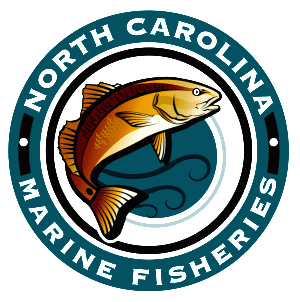 The public will have a chance to speak during a meeting in New Bern that could lead to commercial shrimp trawling restrictions in North Carolina. Multiple media outlets report five advisory committees to the N.C. Marine Fisheries Commission will meet jointly Tuesday at the New Bern Riverfront Convention Center. The committee members will discuss a petition was filed by the North Carolina Wildlife Federation that would designate fishing waters in the sounds and three miles into the ocean as primary nursery areas to protect habitats for juvenile fish. Another change would be to limit the days and hours when shrimp trawling is allowed. Commercial fishermen say the proposed regulations would further threaten the shrimping business in North Carolina. link 07:41
The public will have a chance to speak during a meeting in New Bern that could lead to commercial shrimp trawling restrictions in North Carolina. Multiple media outlets report five advisory committees to the N.C. Marine Fisheries Commission will meet jointly Tuesday at the New Bern Riverfront Convention Center. The committee members will discuss a petition was filed by the North Carolina Wildlife Federation that would designate fishing waters in the sounds and three miles into the ocean as primary nursery areas to protect habitats for juvenile fish. Another change would be to limit the days and hours when shrimp trawling is allowed. Commercial fishermen say the proposed regulations would further threaten the shrimping business in North Carolina. link 07:41






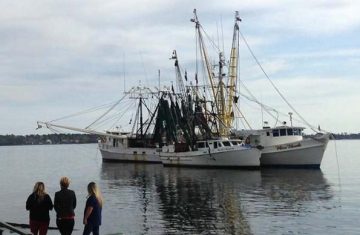
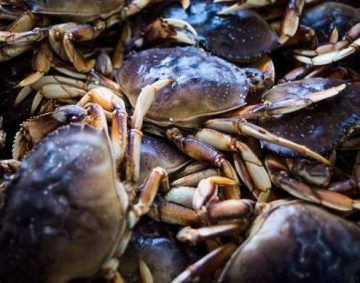 A perfect storm of weather, strong catches and domoic acid worries has led to a glut of crab on the market, overwhelming processors and making it harder for fishermen to find buyers for the high-value crustacean. Dave Hubbard, captain of the fishing vessel Katrina, said he waited 58 hours to unload 25,000 pounds of crab his crew had caught between Garibaldi and Klipsan Beach, Washington. On Monday, the Katrina docked at the Port of Astoria’s Pier 2, its catch unloaded by workers from Bornstein Seafoods. Hubbard said processors were hit by icy weather on land preventing delivery trucks and workers from coming and going. The processors have boats on catch limits, he said, based on the amount of crab pots they drop. “Everyone’s jammed up,” said Steve Fick, owner of Fishhawk Fisheries in Astoria.
A perfect storm of weather, strong catches and domoic acid worries has led to a glut of crab on the market, overwhelming processors and making it harder for fishermen to find buyers for the high-value crustacean. Dave Hubbard, captain of the fishing vessel Katrina, said he waited 58 hours to unload 25,000 pounds of crab his crew had caught between Garibaldi and Klipsan Beach, Washington. On Monday, the Katrina docked at the Port of Astoria’s Pier 2, its catch unloaded by workers from Bornstein Seafoods. Hubbard said processors were hit by icy weather on land preventing delivery trucks and workers from coming and going. The processors have boats on catch limits, he said, based on the amount of crab pots they drop. “Everyone’s jammed up,” said Steve Fick, owner of Fishhawk Fisheries in Astoria. 





























